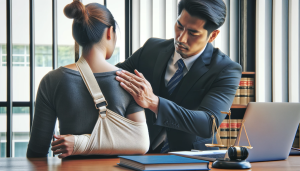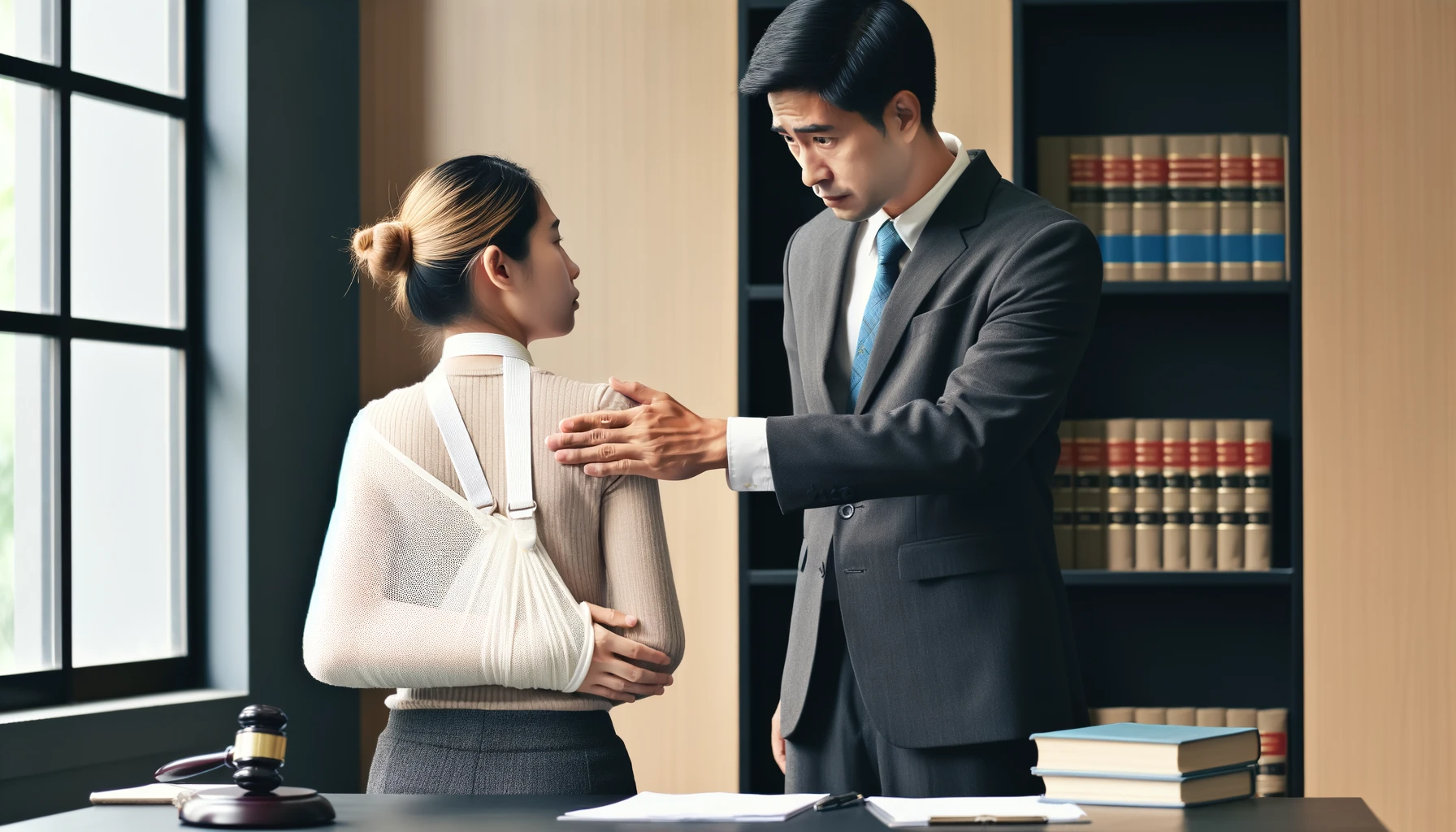Accidents can happen to anyone, anywhere, and the moments following a car crash can be overwhelming and confusing. It's crucial to understand your rights and the steps you should take to protect them. This guide will walk you through the essential actions to take after a car accident, so you're prepared should you ever find yourself in such an unfortunate situation.


Immediate Actions at the Accident Scene
Ensuring Safety First and foremost, if you're involved in a car accident, it's imperative to ensure the safety of yourself, your passengers, and other road users. Move vehicles out of traffic if possible, and promptly turn on hazard lights to alert oncoming vehicles. Always prioritize safety to prevent further incidents and injuries. Checking for Injuries After the collision, it's essential to check yourself and others for injuries. However, exercise caution and avoid attempting to move anyone who is injured unless there is an immediate danger, such as a fire. Even seemingly minor injuries can be more serious than they initially appear, so it's essential to await professional medical assessment. Contacting Authorities In the event of an accident, dial emergency services right away. Even in seemingly minor collisions, obtaining a police report can prove invaluable when dealing with insurance companies and potential legal issues. Promptly reporting the incident ensures that proper documentation and assistance are on the way.
Documentation and Information Exchange
Gathering Necessary Information Exchange critical information with the other driver involved in the accident. This information should include names, addresses, phone numbers, insurance details, and vehicle specifics. While interacting with the other party, maintain politeness and courtesy, but avoid engaging in discussions about fault or making statements that could potentially be used against you later in the legal process. Taking Photos and Notes To strengthen your case and provide evidence for insurance claims and potential legal matters, thoroughly document the accident scene. Take clear and comprehensive photos of the vehicles involved, including their license plates, and any relevant road conditions or traffic signs. Additionally, take detailed notes about the accident while the details are fresh in your mind.The Role of Police and Roadside Assistance
Filing a Police Report When the police arrive at the accident scene, provide them with an honest and accurate account of the incident. It's also a good idea to inquire about how to obtain a copy of the police report for your records, as this document plays a vital role in the insurance claim process. Utilizing Roadside Assistance If you have access to roadside assistance through your insurance provider or a third-party service, it's advisable to contact them immediately after the accident. They can assist with various tasks, such as towing, changing a flat tire, or jump-starting your vehicle if necessary, helping to minimize further complications.Navigating the Insurance Claim Process
Initiating a Claim As a crucial step in the post-accident process, promptly get in touch with your insurance company to report the accident. They will guide you through the car insurance claim process, explaining what documentation is required and assisting you in moving forward with your claim. Understanding Fault Determination Rules It's essential to recognize that insurance companies will conduct investigations to determine fault based on the available evidence and the fault determination rules applicable in your region. Understanding how fault is determined is crucial, as it directly impacts how your claim will be processed.Seeking Medical Attention and Legal Advice
Addressing Car Accident Injuries Even if you believe you are uninjured, it's wise to seek medical attention promptly after an accident. Certain injuries, like whiplash, may not manifest symptoms immediately, and a medical evaluation can identify potential issues early. Consulting with a Car Accident Lawyer In cases where the accident is severe or results in substantial medical expenses or loss of income, consider seeking legal advice. Scheduling a consultation with a car accident lawyer can provide clarity regarding your rights and available options for pursuing compensation.
Post-Collision Steps
Auto Accident Checklist Maintain an auto accident checklist in your vehicle's glove compartment. This checklist should include reminders of the necessary information to collect and steps to take following an accident, ensuring that you don't overlook any crucial details. Traffic Collision Advice Stay proactive in your interactions with your insurance company, keeping them informed about your accident-related expenses and maintaining records of all such expenses. Staying informed about the progress of your claim and any potential legal proceedings is essential for a smooth resolution.Dealing with Car Repairs and Personal Injury Claims
Getting Your Vehicle Assessed To address vehicle damage effectively, arrange for a professional assessment of your vehicle's condition. Your insurance company may require you to visit approved auto repair shops to ensure that repairs meet their standards. Filing Personal Injury Claims In the event of injuries sustained in the accident, you may need to file personal injury claims. It's crucial to maintain detailed records of all medical visits, treatments, and how these injuries impact your daily life. These records are instrumental in substantiating your claims.Long-Term Considerations
Monitoring Injury Progress Track the progress of your injuries and any long-term effects they may have. This information is invaluable for ongoing insurance claims or potential legal cases, ensuring that your rights are protected and that you receive appropriate compensation. Ongoing Legal Processes If your case involves legal action, maintain regular communication with your lawyer and provide updates on any changes in your condition or financial situation. Collaboration with legal professionals is essential to navigate complex legal processes effectively.Conclusion
Understanding what to do after a car accident can significantly impact the outcome of insurance claims, legal issues, and your personal well-being. Always prioritize safety, gather necessary information meticulously, and seek professional advice when needed. Being prepared and aware of your rights can make a world of difference in a challenging situation.Look for an attorney who has the right legal resources for your legal needs.
Contact us here on the Warmuth Law website or through our hotline 888-517-9888.











